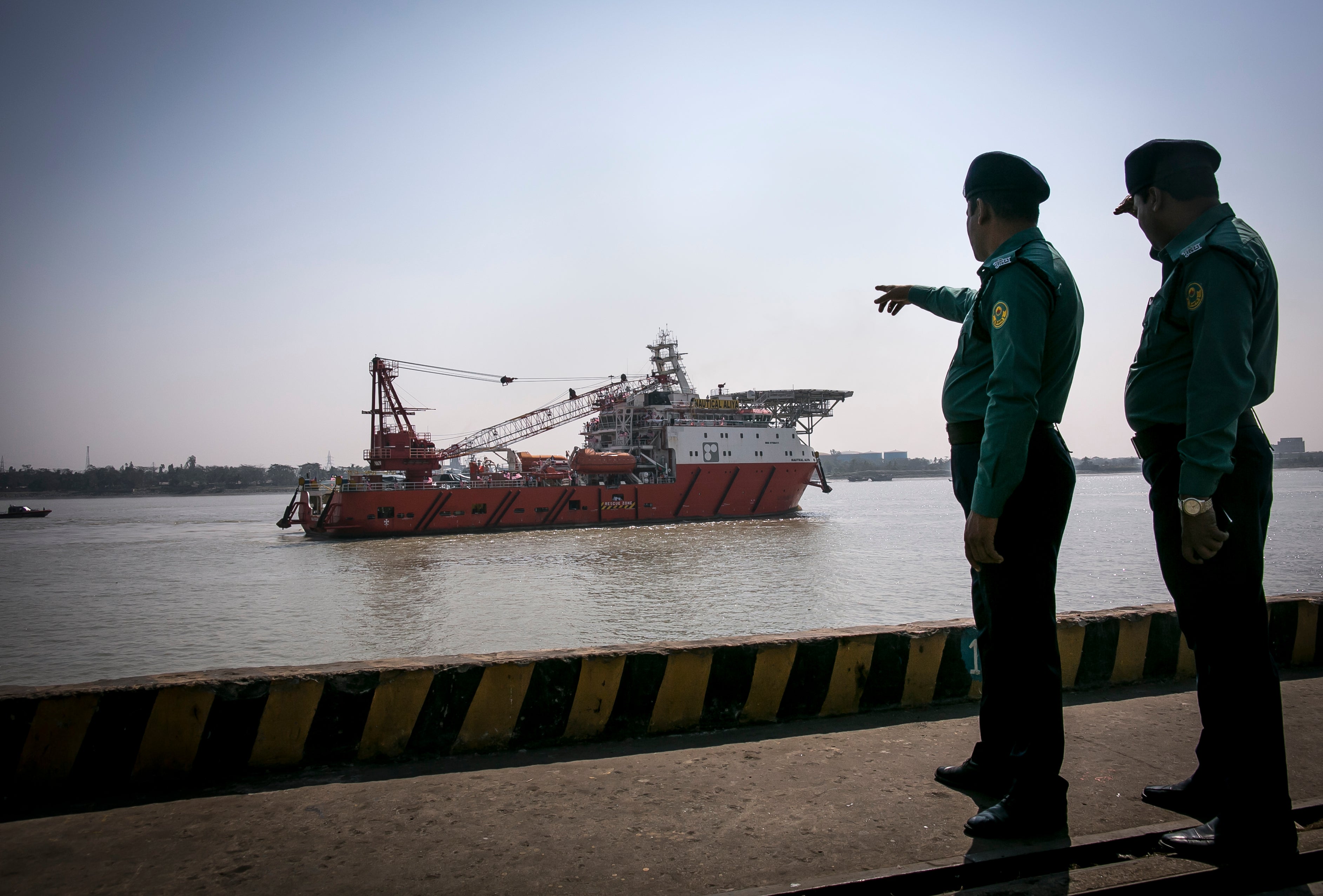Why a Pakistan cargo vessel’s arrival in Bangladesh is being hailed as a historic moment
Pakistan high commission says first direct cargo vessel to Bangladesh marks a major step in bilateral trade

Your support helps us to tell the story
From reproductive rights to climate change to Big Tech, The Independent is on the ground when the story is developing. Whether it's investigating the financials of Elon Musk's pro-Trump PAC or producing our latest documentary, 'The A Word', which shines a light on the American women fighting for reproductive rights, we know how important it is to parse out the facts from the messaging.
At such a critical moment in US history, we need reporters on the ground. Your donation allows us to keep sending journalists to speak to both sides of the story.
The Independent is trusted by Americans across the entire political spectrum. And unlike many other quality news outlets, we choose not to lock Americans out of our reporting and analysis with paywalls. We believe quality journalism should be available to everyone, paid for by those who can afford it.
Your support makes all the difference.A cargo vessel from Pakistan’s Karachi has docked at Bangladesh’s southeastern coast, marking the first-ever direct maritime contact between the two countries since the 1971 Bangladesh Liberation War.
The vessel from Karachi docked in Bangladesh’s Chittagong port on Wednesday, the Pakistan High Commission in Bangladesh said.
The docking of the vessel underscores a historic shift in the traditionally complex Pakistan-Bangladesh diplomatic relationship, signalling a warming of ties under the new interim government led by Mohammad Yunus following the ousting of the India-friendly Sheikh Hasina administration.
Bangladesh, formerly known as East Pakistan, emerged as an independent nation after a war with West Pakistan (now Pakistan) in 1971. The nine-month conflict, marked by widespread atrocities, left deep scars and has long affected relations between Dhaka and Islamabad, with many in Dhaka holding Pakistan responsible for the mass atrocities.
Over the years, Bangladesh forged close ties with India, the country that intervened in support of the independence movement, leading to a decisive victory for the Bangladeshi forces over Pakistan and on 16 December 1971, Bangladesh formally gained independence, marking a historic shift in South Asian geopolitics.
Ms Hasina’s father Sheikh Mujibur Rahman, often called the "Father of the Nation" in Bangladesh, became the country’s first prime minister of newly founded Bangladesh.
Pakistan High Commission in Bangladesh hailed the move as a “major step in bilateral trade”.
“This new route will streamline supply chains, reduce transit time and open new business opportunities for both countries,” it said.
High Commissioner Syed Ahmed Maroof said the first-ever direct maritime link between the two countries highlights the growing demand for direct trade.
He also proposed launching more direct shipping transport between Pakistan and Bangladesh and said, “The system will help to take forward the eco-social relations of the two countries”.
Ms Hasina was ousted following a mass student uprising in the country against her government, forcing her to offer her resignation and flee to India on a helicopter as protesters stormed the presidential palace.
Following her ouster, symbols of the 1971 war, including portraits and a statue of her father Mujibur Rehman, who was assassinated along with Ms Hasina’s mother and three brothers.
Since Ms Hasina’s ouster, both Islamabad and Dhaka have called for forging closer ties and normalisation of relations.
Mr Yunus and Pakistani prime minister Shehbaz Sharif met at the United Nations General Assembly in New York in September, underscoring the need to revitalise bilateral cooperation between the two countries.
“It’s very essential we revive our relations,” Mr Yunus said in New York, calling for a “new page” in their relations to enhance cooperation in different sectors.
This marks a significant shift from the policies in Ms Hasina’s administration. In August 2022, the Bangladesh government denied permission to a newly-commissioned Chinese-built frigate warship PNS Taimur to dock at Chattogram Port, according to the Hindustan Times newspaper.
The warship finally docked at a port in Sri Lanka following its maiden voyage following exercises with Cambodian and Malaysian navies.
Sri Lanka allowed PNS Taimur to make a port call in Colombo while on its way to join the Pakistan Navy here on August 15 after the Bangladesh government denied it permission to dock at Chattogram Port.
Under Ms Hasina’s 15-year rule, India enjoyed close ties with the country as she oversaw an economic boom and drew the two countries closer on business, energy and defence. Bangladesh is India’s biggest trade partner in South Asia, with bilateral trade of just under $16bn.
Join our commenting forum
Join thought-provoking conversations, follow other Independent readers and see their replies
Comments